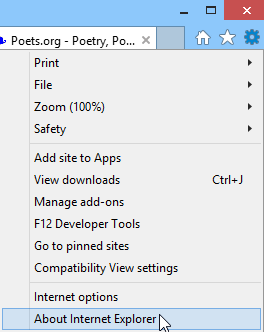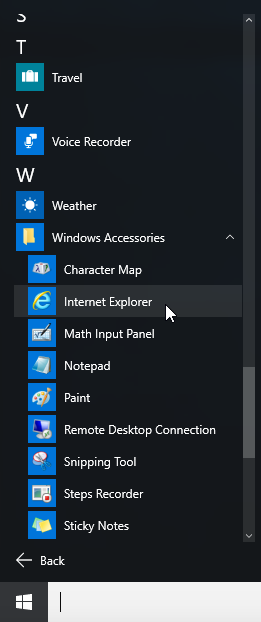Internet Explorer -
All About Internet Explorer

Internet Explorer
All About Internet Explorer


As of June 2022, Internet Explorer is set to be discontinued. Check out our free tutorial about web browsers and other internet basics.
Internet Explorer (IE) is one of the most popular web browsers in the world. We'd like to offer you a brief overview of the currently available versions of Internet Explorer and try to answer some questions you may have.
Internet Explorer is the default web browser for Windows computers and tablets using Windows 8.1 or earlier. However, Internet Explorer 11 will be the last version of IE. Starting with Windows 10, the default web browser is Microsoft Edge.
This depends on which Windows operating system you're using:
IE 11 has two versions for Windows 8.1: one for the Start screen, and one for the Desktop. We'll talk about both in this tutorial.
Navigate to Settings in your browser and select About Internet Explorer (or About in some versions of IE). You'll then be able to see the version number you're using.

Alternatively, navigate to this webpage while using Internet Explorer. This will tell you which version of IE you're using.
If you're using Windows, some version of IE comes pre-installed on your computer. If your computer automatically installs updates for Windows, new versions of IE will be installed as updates. Otherwise, you can download the most recent version of IE for your operating system directly from Microsoft.
If you're using IE 11, take a look at this lesson from our tutorial. For earlier versions of IE, review this lesson on IE 8.
No. Internet Explorer is only supported for Windows operating systems.
IE 10 was released for Windows 7 and Windows 8 in 2012. Unlike some older versions of IE, Microsoft has decided to phase out this version and replace it with IE 11. These two versions are basically the same, with some minor differences.
Even though Microsoft Edge is the default browser, you can still access IE 11. Simply click the Start button > All Apps > Windows Accessories > Internet Explorer.

/en/internetexplorer/getting-started-with-internet-explorer-11/content/